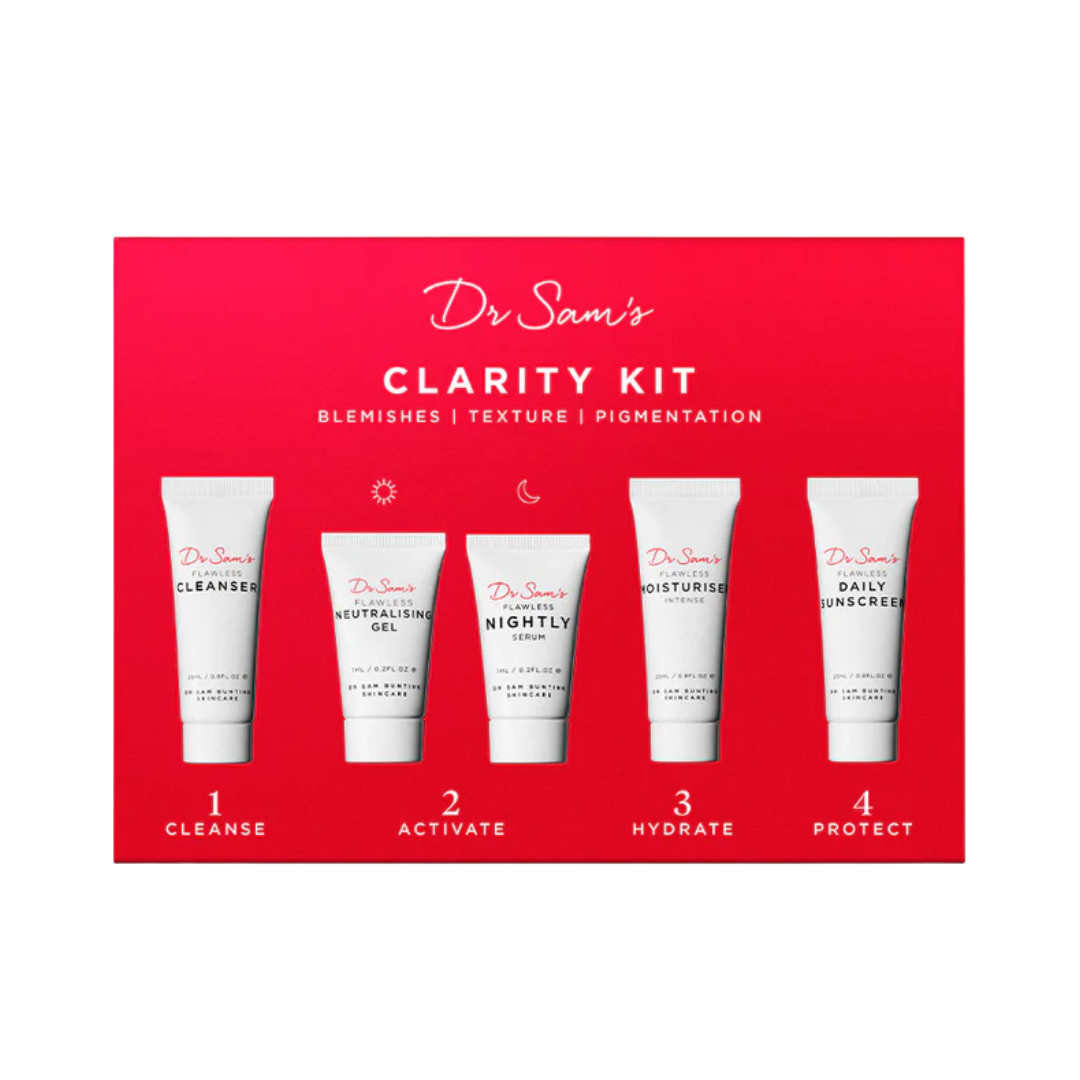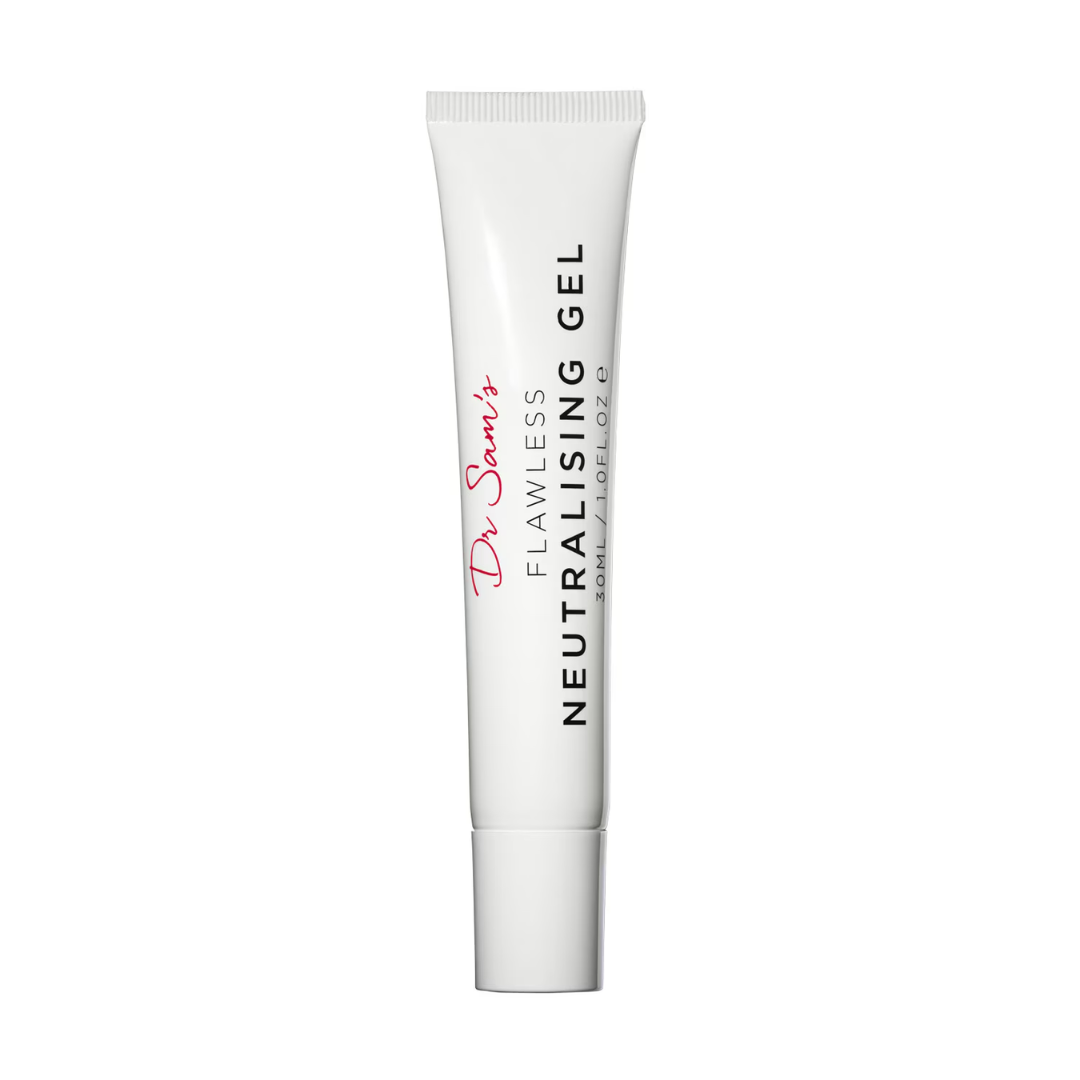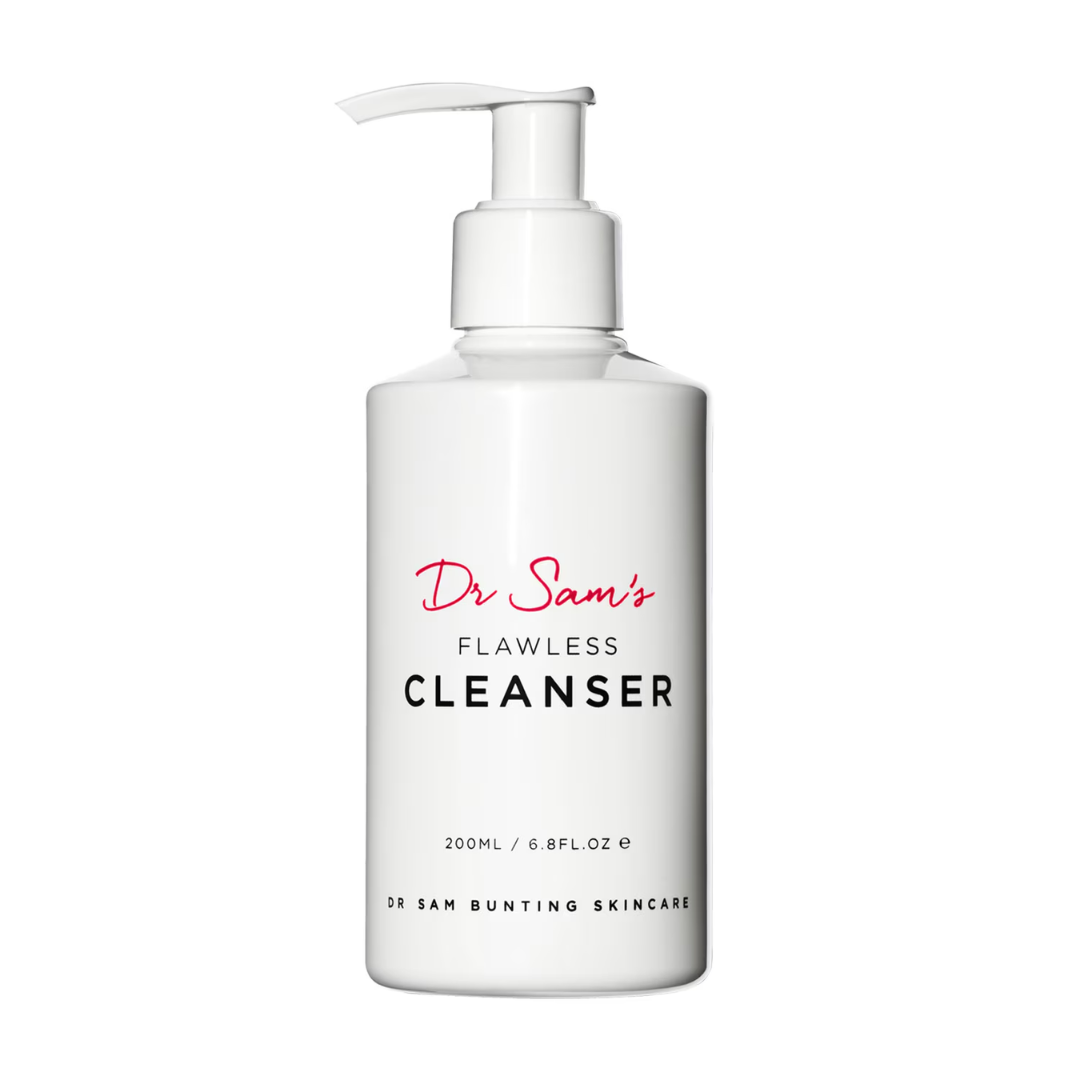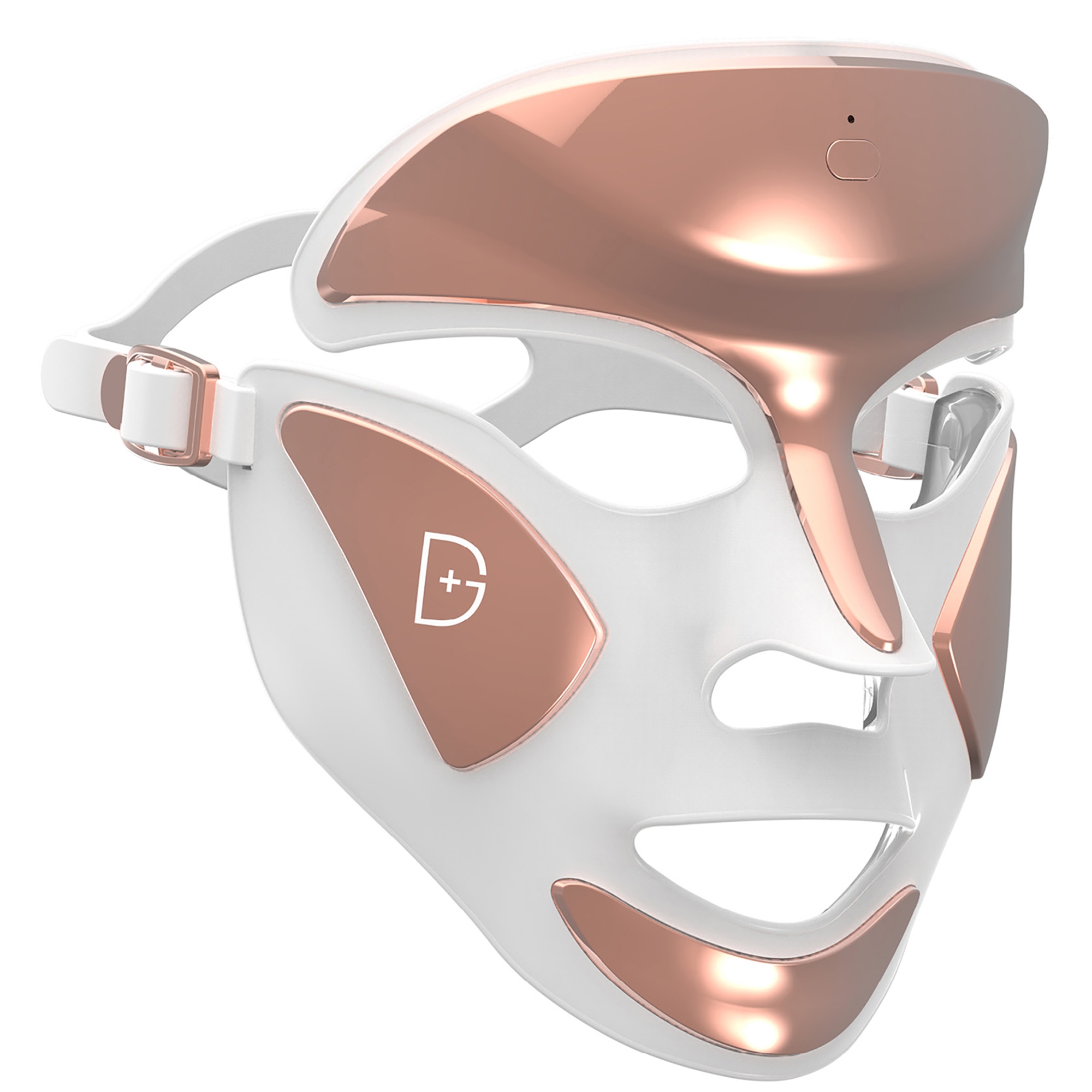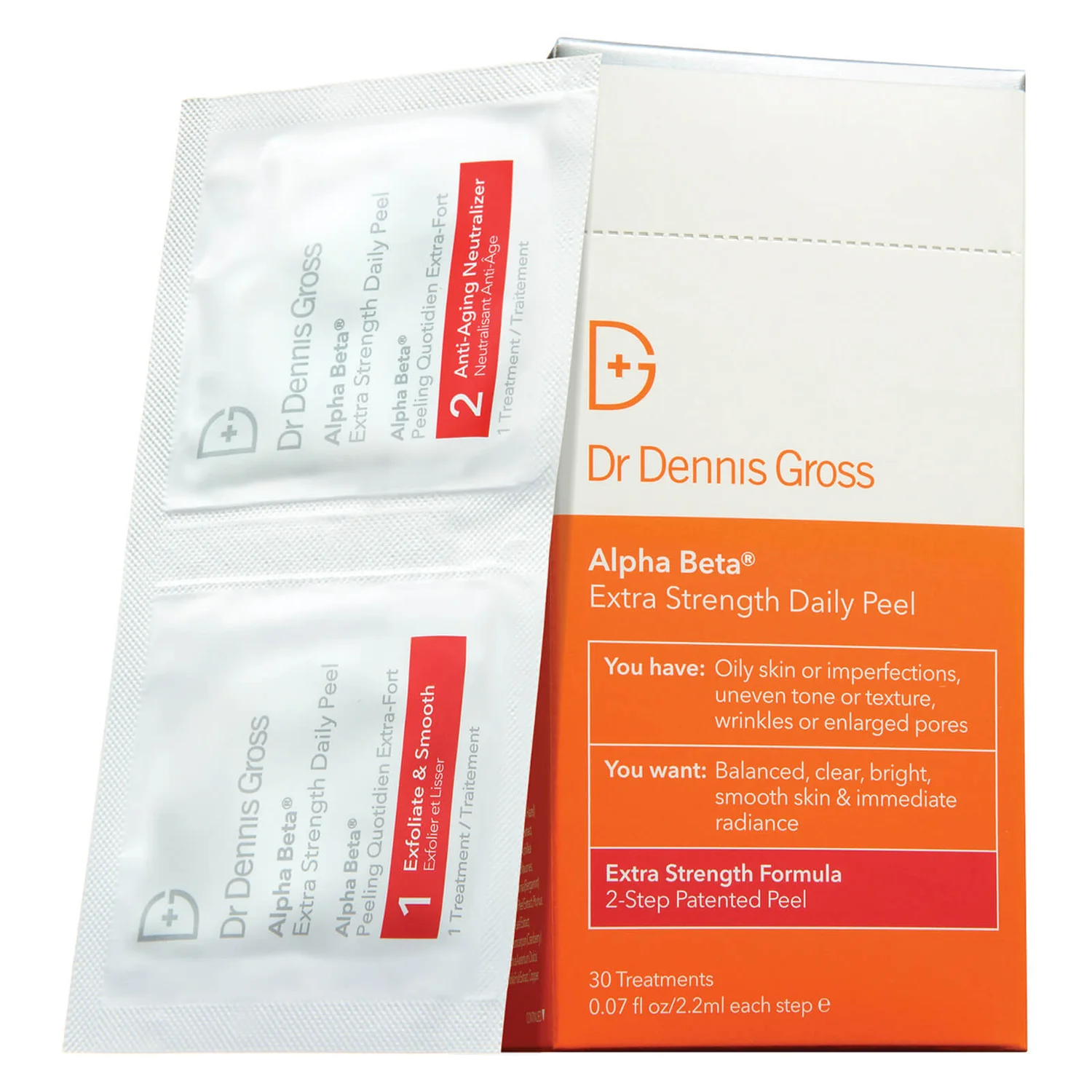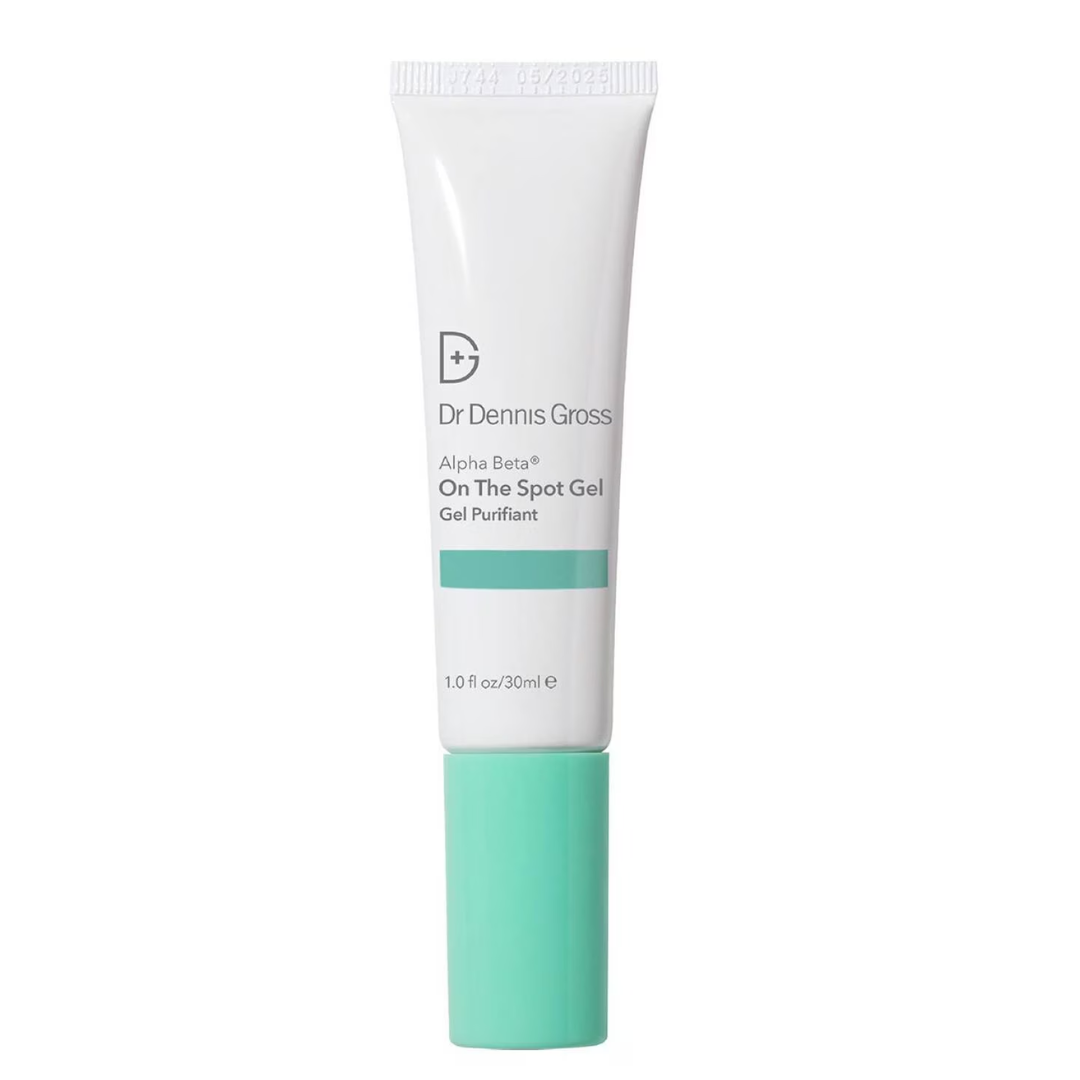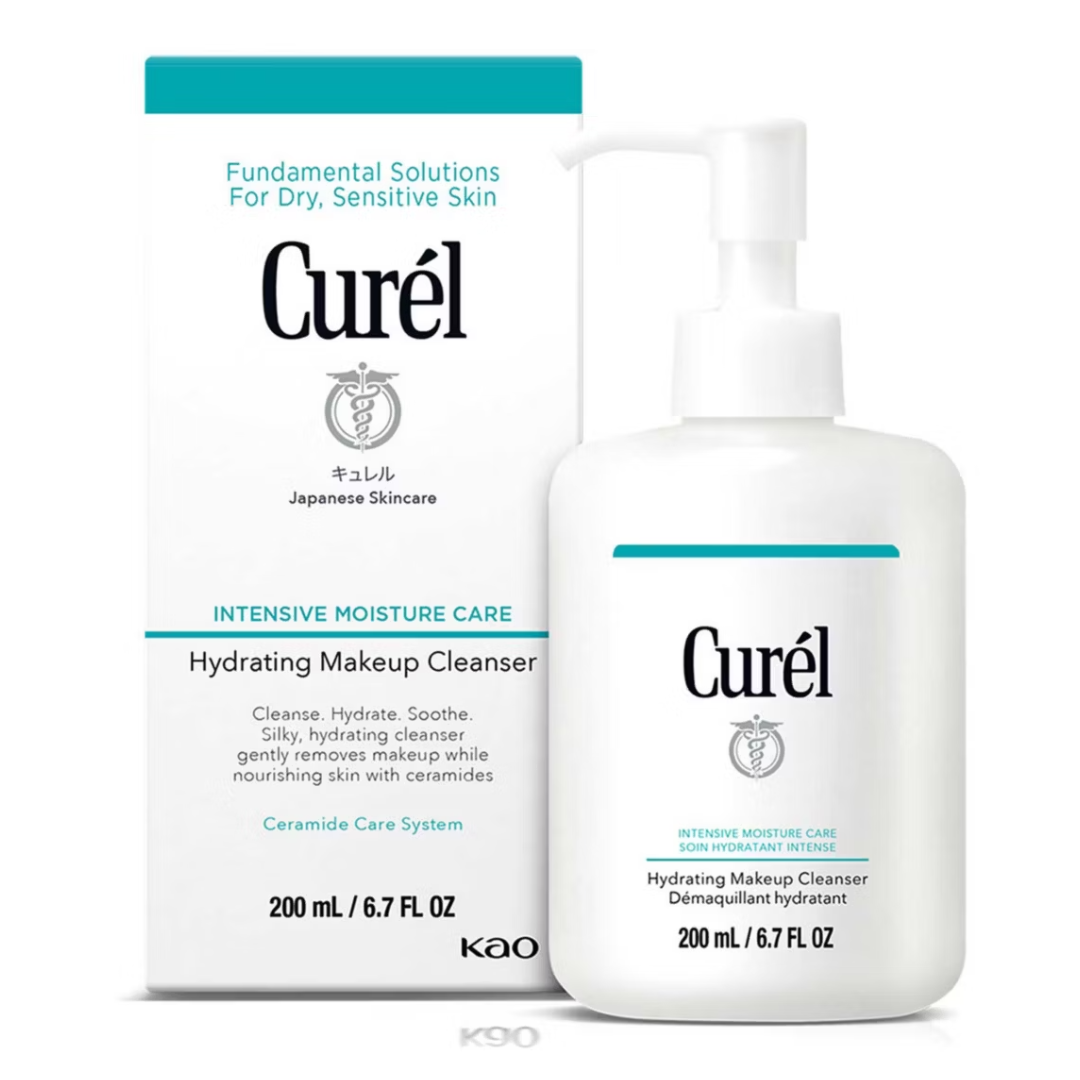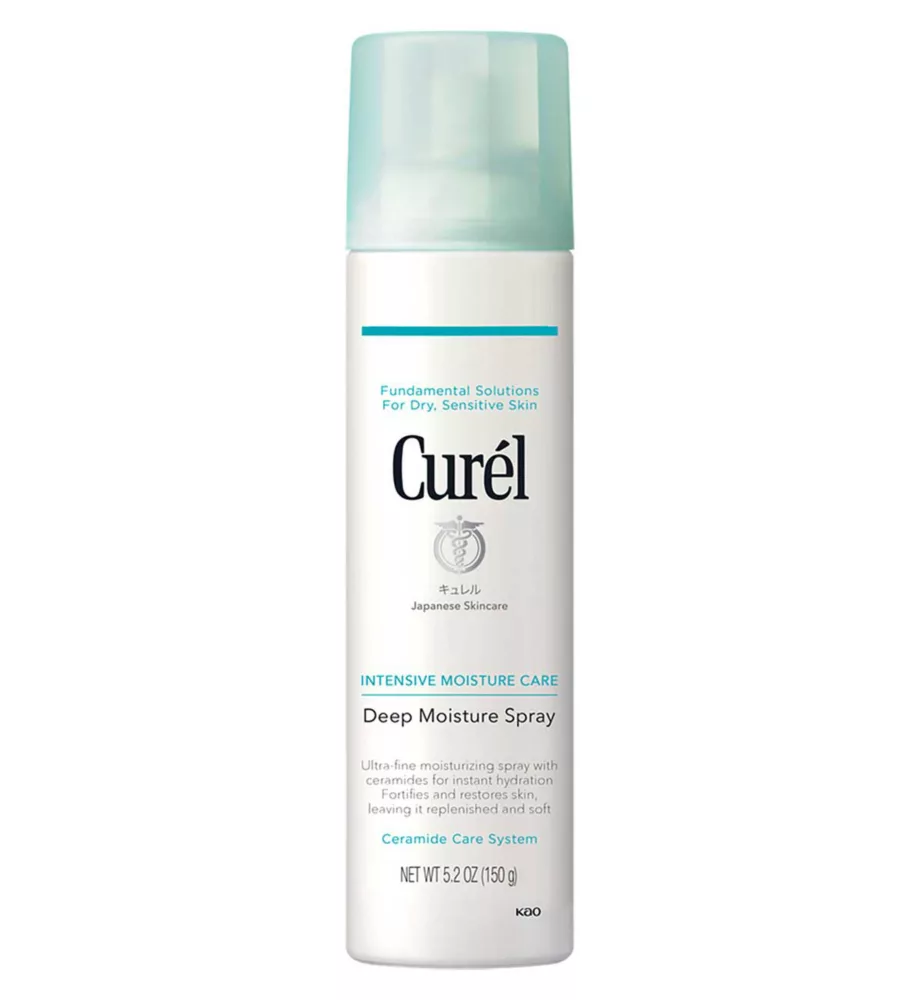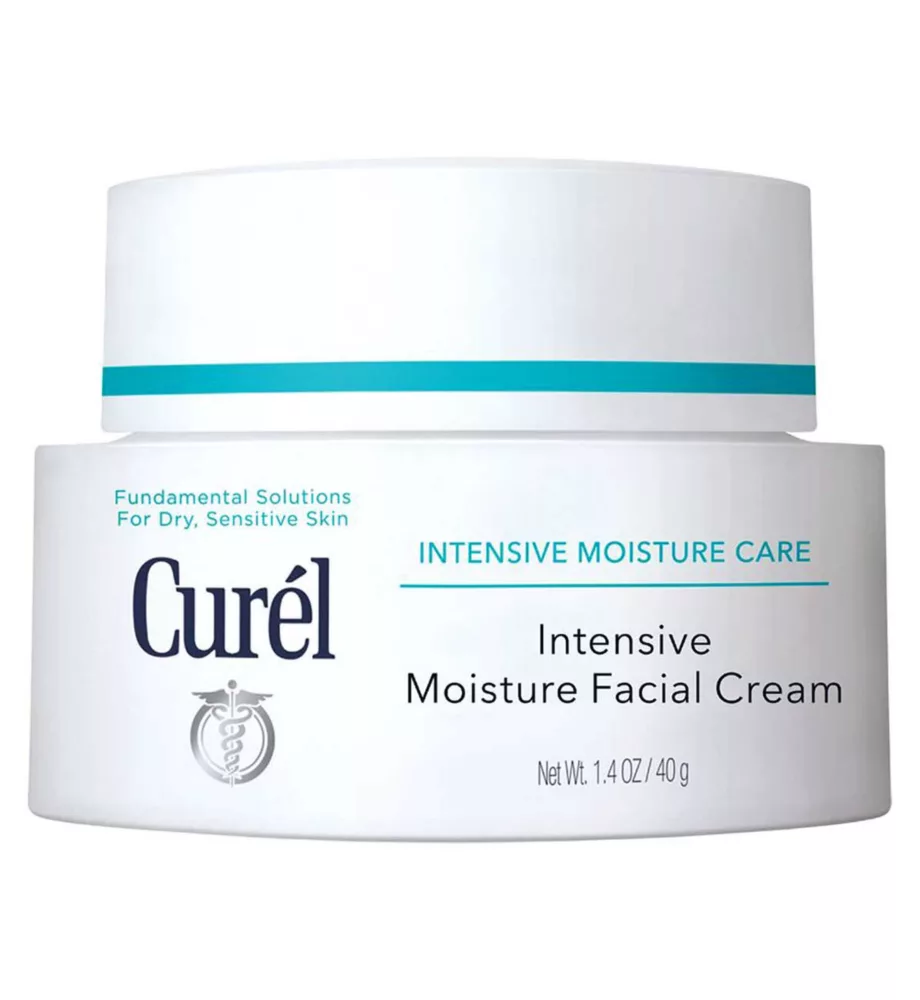I Just Turned 30, and Have Breakouts for the First Time—3 Top Derms Explain How Skin Shifts From Your 20s to 30s
Dr Dennis Gross, Dr Sam Bunting and more weigh in

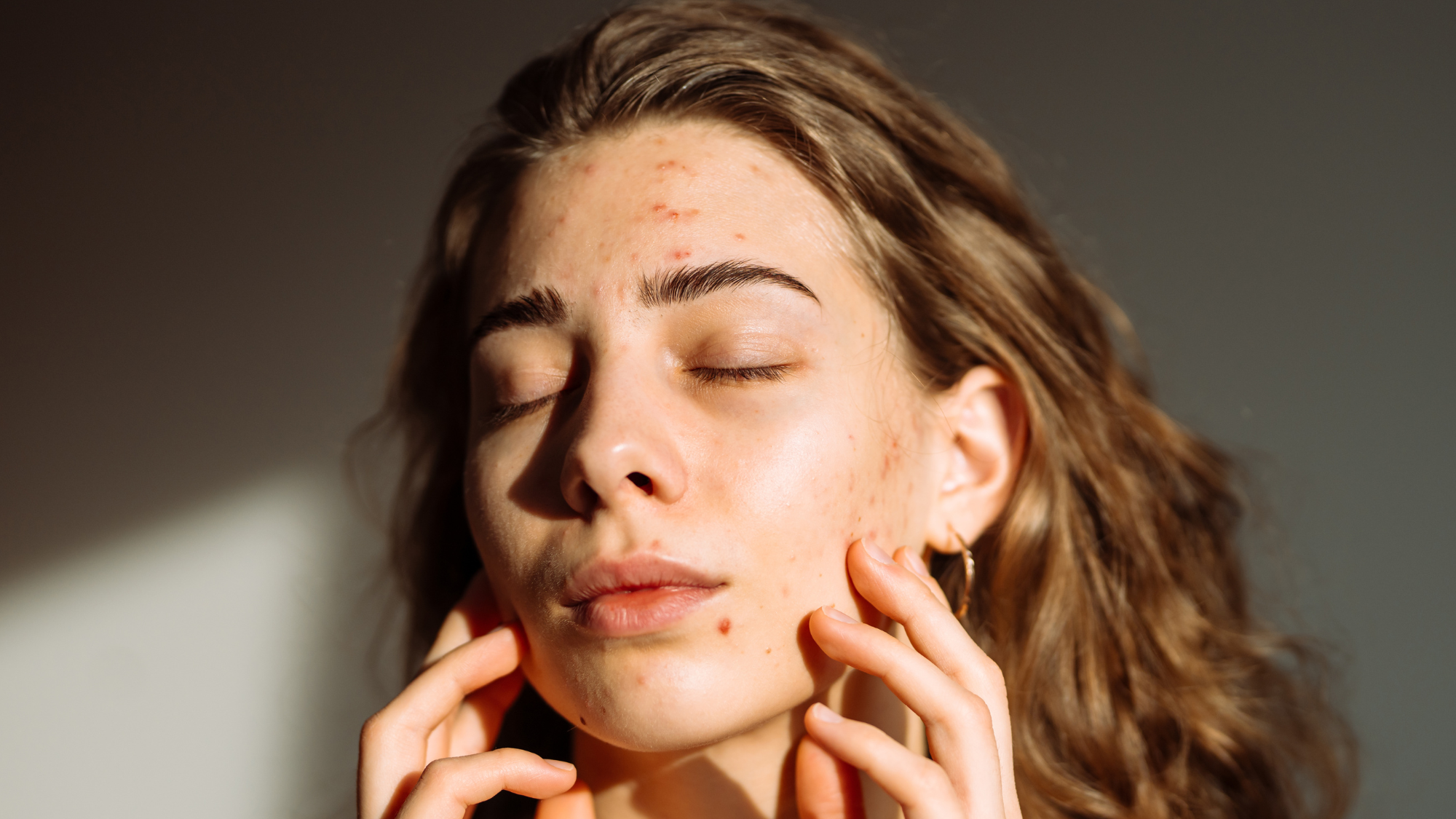
Celebrity news, beauty, fashion advice, and fascinating features, delivered straight to your inbox!
You are now subscribed
Your newsletter sign-up was successful
I'd always heard the words "adult acne" bandied around, and thought: 'surely not'. I've never struggled with breakouts, aside from the odd flare-up, but in the lead-up to my 30th birthday, I started getting them persistently, to my horror. They weren't terrible, per se, but as soon as one area would clear, another would rise to the occasion and take its place. It was frustrating, and quite prohibitive to my job—as a beauty editor, I'm expected to trial the gamut of new products, and I began to suspect all that testing wasn't doing my skin any favours.
So, I stripped things back, and am pleased to report that things are slowly but surely improving. To get there, I consulted my black book of dermatologists to understand why and how my skin was changing—and whether it was linked to entering a pivotal new decade (spoiler alert, it was). Plus, most importantly, they shared how to deal with it. Get the lowdown below.
Dr Sam Bunting
Dr Sam Bunting was the first dermatologist I spoke to after several of my colleagues raved about her skincare line. With targeted solutions, and even in-person clinic appointments available in London, you've likely seen scores of beauty journalists and influencers speaking about her eponymous skincare range—especially the viral Neutralising Gel for acne-prone areas. I was lucky enough to bag a consultation with Dr Sam, and she immediately told me to take everything back to basics, be mindful of my bedsheets and try her Clarity Kit. She also has another targeted kit, Radiance, for those more concerned with fine lines, wrinkles and plumping.
"As women move from their late 20s into their 30s, subtle but significant changes in the skin begin to emerge—collagen production slows down, repair processes aren’t quite as snappy, and early signs of ageing like fine lines and uneven texture start to creep in," she explains.
"This is the perfect time to double down on consistency: resist the urge to constantly switch up your routine. A solid foundation built on daily SPF and the gentle, gradual introduction of a retinoid, like my Flawless Nightly Serum, can make all the difference. It’s ideal for retinoid newcomers who want results without upsetting their skin barrier. For those looking to get ahead of the curve, ingredients like Sunflower Shoot Extract are worth considering; they support cellular energy and repair, helping to future-proof your skin from the inside out by boosting longevity molecule NAD+. As a bonus, this makes your retinoid and sunscreen work even harder."
For breakout-prone skin, she recommends the Clarity Kit, and I have found the cleanser, and particularly the Neutralising Gel, to be a game-changer. It's the only routine I will be sticking to for the foreseeable future.
Dr Dennis Gross
I've used Dr Dennis Gross' excellent products on and off since I was a teenager; they're cult for good reason.
Celebrity news, beauty, fashion advice, and fascinating features, delivered straight to your inbox!
When I consulted the dermatologist, he said that the best way to prepare for your 30s is by focusing on prevention in your 20s. "You must begin to topically apply products that contain antioxidants and collagen-boosting ingredients, also remember to wear SPF every day," he explains. "Starting an anti-ageing regimen early on will limit the damage done to your skin, making it easier to treat signs of ageing as the years continue. And at this age, cleansing is critical for skin health—never go to sleep with your makeup on, as doing so can block pores, leaving oil trapped inside, which leads to bacterial buildup and breakouts."
When you're in your 30s, he advises incorporating a vitamin C product in your daily regimen. "It not only protects skin against damaging free radicals but also stimulates your body’s natural production of collagen. Retinoids, derivatives of vitamin A, are also an important part of the antiaging arsenal in this age group—they stimulate the production of new skin cells and inhibit the body’s natural enzymes that break down collagen. Professional peels, administered by a doctor, can help firm skin and reduce the appearance of fine lines and wrinkles, but you can use at-home versions, like our Alpha Beta Daily Peels, regularly between visits to exfoliate and further battle the onset of wrinkles. Finally, incorporating LED is a great idea. My SpectraLite FaceWare Pro has both blue and red LED lights to combat adult acne and breakouts, and signs of ageing.
The first thing I picked up after growing incredibly frustrated by my skin was Dr Dennis' SpectraLite FaceWare Pro, and I saw results within days—it's really calmed things down. And while you can use the blue and red light simultaneously, I like doing both separately for added benefits. I haven't gone a day without using it in months.
Dr Catharine Denning
I met Dr Catharine Denning several weeks ago, at an event for the Japanese Skincare Brand Curél—and I really enjoyed her barrier-repair-oriented approach to skin health.
She tells me: "From the age of 20, we lose approximately one per cent of our skin’s collagen and elastin each year, but by our early 30s, these changes become more apparent. This gradual decline can lead to the appearance of fine lines, elasticity, and more noticeable pigmentary changes. Additionally, hormonal fluctuations may start to occur as some women enter perimenopause in their late 30s or early 40s. These hormonal shifts can exacerbate the loss of firmness and elasticity, while also contributing to drier skin and slower cell turnover, leaving the complexion looking dull and dehydrated."
Dr Catharine recommends making strategic adjustments in your early 30s to support your skin during this transformative decade. "Boosting collagen production and increasing skin cell turnover with retinoids are particularly effective for this purpose. For those who aren’t pregnant or breastfeeding, I suggest a prescription-strength retinoid like tretinoin, or for individuals with more sensitive skin, Medik8’s Crystal Retinal system is an excellent alternative. Retinoids not only promote collagen synthesis but also help improve pigmentation issues and slow down visible signs of ageing. Incorporating gentle exfoliation is another important step. Resurfacing the skin with AHAs such as glycolic acid or hydrating lactic acid can prevent the buildup of dead skin cells that contribute to a dull complexion. Products like Obagi’s Exfoderm Forte (or Exfoderm for more sensitive skin) are great options to keep the epidermal layer smooth and radiant."
However, she stresses that hydration and barrier protection are absolutely critical during this time frame, especially after introducing active ingredients like retinoids and AHAs. "Maintaining a healthy skin barrier helps reduce sensitivity and lock in moisture," she explains. "All of Curél’s moisturisers are enriched with ceramides, which play a vital role in rebuilding the skin’s barrier function and maintaining hydration."
I've recently fallen in love with the brand's new Hydrating Makeup Remover, which is a skin-loving alternative to Micellar Water; instead of stripping the skin, it hydrates and nourishes the skin with ceramides, and you don't even need to rinse it off.

Nessa Humayun is the Beauty Editor at Marie Claire UK. With over eight years of editorial experience across lifestyle sectors, Nessa was previously the Editorial Lead of HUNGER Magazine, and has bylines in British Vogue, Dazed, and Cosmopolitan. A self-confessed human guinea pig, Nessa covers everything from product must-haves to long-reads about the industry writ large. Her beauty ethos is all about using products that work hard, so you don't have to.
